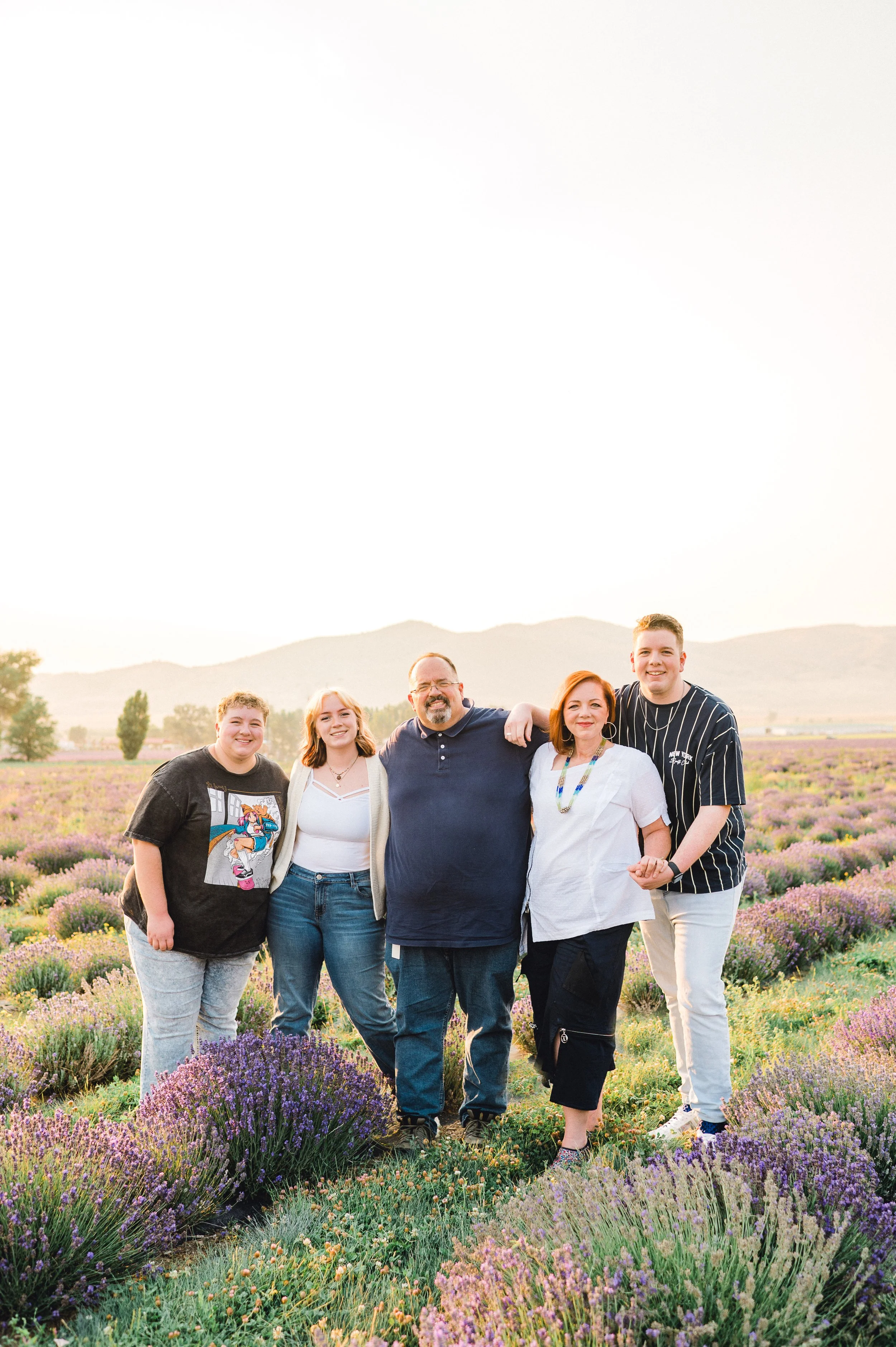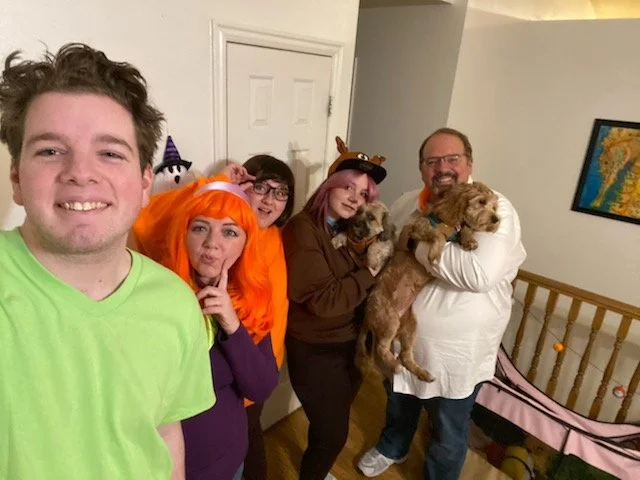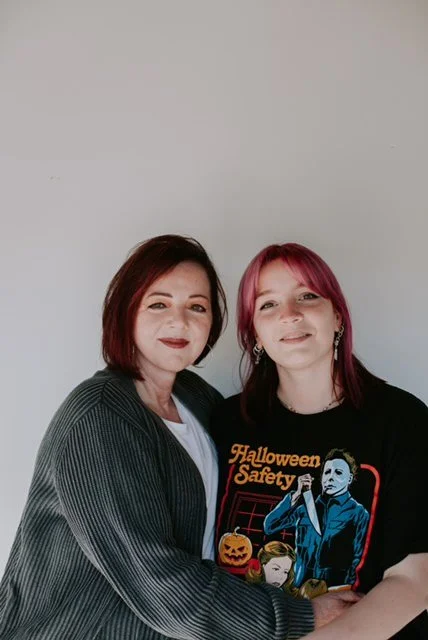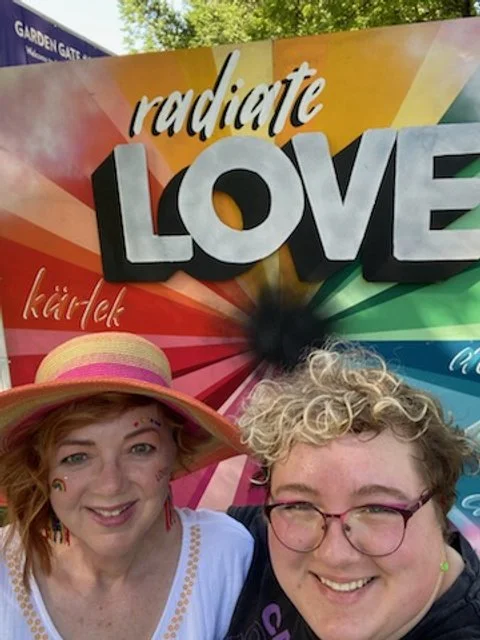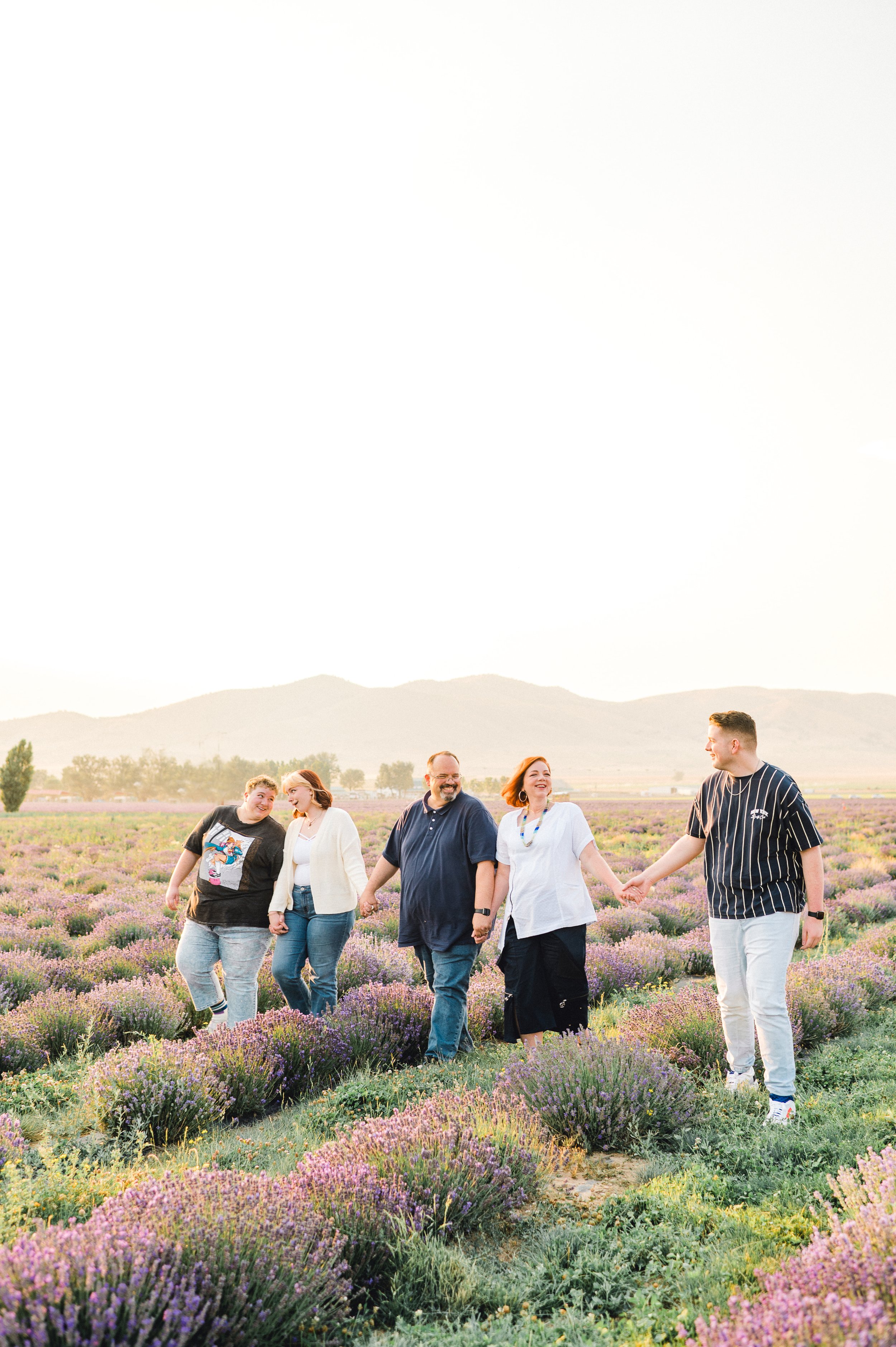Each week, Teddi and Eric von Pingel experience a different type of Sunday than they once envisioned. For Teddi, it’s a physically taxing endeavor as she now serves as the ASL interpreter coordinator for a Deaf ward in Lehi, UT, where Eric teaches Sunday School. While they dutifully raised their three children in the church, partly out of gratitude for the roots planted by their convert parents, Teddi and Eric now attend alone. The von Pingels once adhered to “all in” gospel living, never questioning what they’d been taught; but now, they regularly question how best to navigate the waters of loving both their LGBTQ children and their church, of which their youngest two no longer feel a part.
It wasn’t always this way. Before they married, Teddi served an ASL mission in North Carolina and Georgia. Eric equally loved his time as an elder in Montevideo, Uruguay. They were committed to raising their kids (Olivia – 23, D’Artagnan – 21, and Sophia – 17) in their faith. All three attended seminary, and their older two graduated. Teddi says they were taken by surprise when Olivia announced her plans to serve a mission after high school graduation, as she had always said she wouldn’t be doing that. But she accepted a call to McAllen, TX - Spanish speaking. About a week after her departure, the von Pingels got a call that Olivia was experiencing debilitating anxiety. Not eating, not sleeping, she was miserable. Her parents referenced their own experiences as missionaries and told her, “You can do this; we know it’s hard.” But the anxiety got worse, and after several more weeks, Olivia’s mission president put her on a plane to go home.
Her homecoming was the beginning of Olivia’s journey of learning to love herself. Olivia still attended church at that point, as she tried to work through what it meant to come home early, even though all her leaders assured her she had served honorably. Gradually, she became less active. Teddi recalls, “I had several promptings she was experiencing same-sex attraction. When I prayed about it, I’d feel ‘This is not your journey, you have to be there for her and let her experience this’.” When Teddi would talk to her daughter about the emotions she was experiencing, she’d ask, “Is there anything else you’d like to talk to me about?” Olivia would reply, “I don’t know, Mom, I don’t know.”
One of the blessings of Covid was the amount of time the family spent together. Finally one day, Olivia approached her mom and said, “I need to be honest with you – I’m bisexual; I’m attracted to women.” Teddi responded, “I already felt that’s what you were going to say – I love you, and I’m proud of you for being who you are.” Teddi continues, “Come to find out, I was one of the last to know. She was afraid I’d be disappointed in her. I think that came from teachings from the church. But I reassured her, ‘I love you, you’re my child first, I will always choose you. Now you’ve got to tell your dad’.” And in walked Eric, who joined them on their couch of tears. Eric also told Olivia, “I love you so much and I’m so proud of you for telling us.”
Teddi recalls that as one of the most beautiful days of her life: “The day my child trusted me to be who she is. I take that as a great honor – to have a child comfortable enough to tell me.” Their conversation took a turn as Olivia then dovetailed into telling her parents she just didn’t think the church was true anymore, saying, “I can’t be a part of a church that doesn’t accept me for who I am. I was trying so hard and what I was experiencing would be seen as unrighteous even though I had never had a serious relationship with anyone, or done anything.” This became a troubling point for Teddi as well – how so many focus on the physical aspects of being LGBTQ, when in reality, so many of these kids haven’t even had that opportunity.
Olivia soon stopped attending church altogether, and struggled with her parents’ continued activity in a church she felt didn’t accept her. Teddi responded, “Sweetie, I don’t know what else to do. It might take me time to navigate all this.” Again, Teddi felt grateful for the home church focus during the pandemic, and that they had time to process their future together. Siblings D’Artagnan and Sophia completely love and support Olivia, and while D’Artagnan is still active in his singles’ ward, Sophia soon after stopped attending seminary, saying she couldn’t attend a church that doesn’t love and accept her sister. Within the last six months, Sophia, now a junior in high school, has also told her parents that she identifies with the “Q” of “LGBTQ:” she’s questioning.
The von Pingels continue to love and support each other where they’re at, and Teddi values their strong family unit. She cringes when she hears parents say things like, “I’d rather my child die than be gay,” something she’d never want to imagine. And she both thanks and laments figures in their past who affected their own views about what it means to have a gay child. Teddi and Eric are grateful for the various LGBTQ coworkers, friends and family members they have who they had the opportunity to care for and root for before they had a child needing them to apply those actions inhouse. And while they offer him grace, they’re a little less grateful for an older neighbor and former home teacher they once had who chose not to support his own gay child, even refusing to attend his wedding because he “didn’t want to send the wrong message.” Teddi feels bad that this experience really stayed with Olivia who withheld her own feelings from her parents for a long time, feeling like, “If that person couldn’t support his own child, how could he ever accept me?” In contrast, the von Pingels also have a fabulous neighbor who sent a note around the neighborhood offering to distribute Pride flags to anyone who might want to share their love and support for their LGBTQ friends during Pride month. “Those small acts – we see. Those of us struggling to fit in, or who have a child who struggles to fit in and who wants nothing to do with church… it’s just being a community member. We see every single thing people put out – flags, mats. Such simple, great gestures,” says Teddi.
Since quarantine has ended, the von Pingels are transitioning to a new normal, which has proven to be an adjustment. Where they live, Teddi says, “It can be hard to know how to make friends when you’re not part of the church community.” But Olivia wants to get out there and date. A former student at UVU, she now is following her brother’s path and is in the coding program at Lambda. Over the past three years, she’s also diligently woken up to work the 5am shift at Hruska’s Kolaches. (Teddi’s had to diligently ask her to stop bringing the delectable treats home anymore.)
While their daughters have stepped away from the church, Olivia and Sophia recognize and appreciate that their parents still embrace the ideals of service and community which Teddi credits as pillars of the church. Otherwise, they’re struggling to “make sense of all this contradiction in what they’ve been taught and the message in their heads.” There are a lot of questions. But Teddi says there came a day when she asked, “How can we be of service still?” That is when she decided to put her ASL skills to use once again to attend the nearby Lehi 44th deaf ward. She says, “For some reason, I feel Olivia can accept that – she knows the deaf community and their struggles and that they are grateful for our presence there. The deaf community is more loving and accepting of all people where they’re at. We’re not sure how long this will last, but for now, this is where we need to be.”
Teddi says in some ways, their journey reminds her of themes in the recent Oscar-winning film, CODA, which follows a deaf family and their hearing child as she debates whether to follow her dreams to become a singer or stay behind to help translate for her parents. Teddi says, “I feel like that movie has another symbolic meaning for parents of LGBTQ – how do they choose? How do we choose? Do you sign? Do you not sign? Do you stay with your family, or pursue your own path? It can feel like a deaf parent who doesn’t fully understand their hearing child. How do you support and love and lift a child when what they’re experiencing is outside your own experience? You just have to believe them.”
And when it comes to her own beliefs, Teddi says, “I don’t know about a lot of things in the church anymore, but I know I have Heavenly Parents who love me and love my children. That’s where I’m staking my flag – and it’s a Pride one.”
















